Best DApps List: 10 dApp Projects You Should Know About
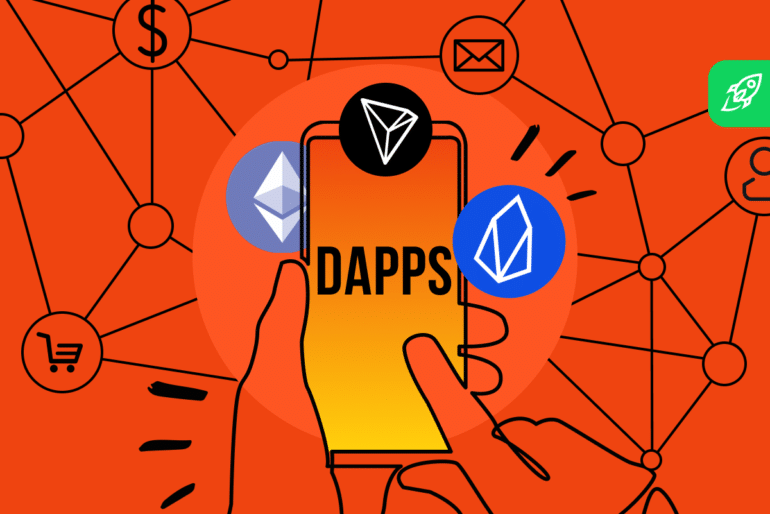

beginner
The world of dApps is constantly evolving, with new projects popping up all the time. Some are designed for gaming, some for finance, and some for social networking. With so many options, it can be overwhelming to choose the right one. That’s why we’ve compiled a list of the top 10 dApp projects you should know about.
Whether you’re interested in investing in DeFi, playing blockchain games, or just exploring the world of dApps, this list has something for everyone. From the most popular dApp projects to hidden gems, we’ve got you covered. So without further ado, here are the best dApps worthy of your attention.
Table of Contents
What Is a DApp?
dApps, short for decentralized applications, are software applications that run on a decentralized network, eliminating the need for a central authority. Unlike the traditional apps we are used to, which rely on centralized servers, dApps operate on a distributed network, where each user acts as both a consumer and a provider. In other words, every user has a copy of the app and can participate in the network, making it more transparent and secure.
The decentralized nature of dApps is made possible by blockchain technology, which serves as the underlying infrastructure. The blockchain acts as a public ledger that records every transaction made on the network, making it transparent and immutable. Smart contracts are used to automate these transactions and ensure that they are executed as per pre-defined rules. This not only keeps data public but also secure, as each transaction is verified by everyone on the network.
How dApps Work
dApps, or decentralized applications, are built on blockchain networks such as Ethereum. They offer a more transparent, secure, and decentralized solution compared to traditional central authority-reliant applications. dApps operate on peer-to-peer networks where each user has a copy of the application and participates in its operation. The size of the dApp user base can impact its security, as there is a correlation between the number of users and the strength of the security measures.
One critical component of dApps is smart contracts, which are self-executing pieces of code that run on the blockchain. Smart contracts enable dApps to function seamlessly on the Ethereum network. Developers use smart contracts for app logic, including the deployment and execution of the application, as well as mediating transactions and agreements between users.
Unlike traditional applications, smart contracts are not controlled by any individual or company, making them trustless and decentralized. They act as a mediator for transactions and agreements, contributing to transparent and impartial processes. Smart contracts execute code according to predefined rules, making their processes unalterable and transparent.
Furthermore, decentralized applications utilize blockchain technology. This means that there is no single point of failure capable of disrupting the entire system. Instead, the network is distributed: each node operates independently, ensuring that the system remains operational even if some nodes go offline. Decentralization also eliminates the risk of censorship or discrimination, supporting accessibility for everyone.
Benefits of dApps
One of the most significant benefits of dApps is their privacy. Since they are built on blockchain technology, dApps operate on a decentralized network, making it increasingly difficult for malicious hackers to infiltrate and steal sensitive information. This enhanced privacy guarantees that user data is secure, and users can utilize these apps without worrying about disclosing their personal information to the central authority.
dApps also provide development flexibility, empowering developers to create applications without facing any restrictions or limitations imposed by central authorities. Developers can work on their dApps according to their desired requirements, therefore making dApps more flexible and customizable compared to traditional applications.
Another major benefit of dApps is the lack of censorship or central control. Unlike traditional apps, dApps are not subject to government regulations or corporate control. Users can operate on the dApp network without any limitations or restrictions, which encourages complete freedom.
Specific industries, such as finance, e-commerce, and gaming, are already embracing dApps to enhance their functionalities. For instance, thanks to dApps, users can have a more transparent, secure, and efficient way of conducting financial transactions. E-commerce also relies on dApps to enhance customer experience and ensure secure transactions. In gaming, dApps are being used to create virtual currencies and assets, enabling gamers to buy, sell and trade gaming assets with ease.
Industries That Use Decentralized Apps
dApps have the potential to revolutionize countless industries and have already proven their value in several key areas. Here are just a few examples of how different industries can use dApps:
- Finance: One of the most widely recognized benefits of dApps is their ability to make secure monetary transactions. dApps that use blockchain technology woo users with an added layer of security that traditional banking systems may not offer. Through the use of smart contracts, financial transactions can be conducted automatically without the need for intermediaries, which can save time and reduce transaction fees. Decentralized financial platforms powered by dApps, such as yield farming and liquidity pools, offer users the opportunity to earn significant returns on their investments.
- Voting: dApps can transform the way we cast, count, and verify votes. By applying transparent and immutable blockchain technology, dApps facilitate electronic elections, diminishing the possibility of voter fraud. Voters can cast their votes from their homes, reducing long lines at polling stations. Furthermore, dApp-based voting systems add an extra layer of security, as votes are verified through smart contracts. This could lead to greater participation in elections and increased confidence in the electoral process.
- Social Media: Traditional social media platforms are known for their questionable data-handling practices. dApps could enhance privacy and security when it comes to user data. By employing blockchain technology, dApp-based social media platforms can give users greater control over their data, allowing them to decide who can access it. Moreover, users can earn tokens for specific actions, such as creating high-quality content or engaging with other users. This could lead to a more vibrant and valuable ecosystem where users are rewarded for their contributions.
- Gaming: The gaming industry has already embraced dApps, but there is still much room for innovation in this area. dApps can offer gamers the opportunity to recoup their losses, which is not possible on traditional gaming platforms. Through blockchain technology, gamers can purchase in-game assets that are stored on the blockchain and can be sold eventually to other players or on third-party platforms. This creates an economy based on dApps, where players can earn tokens and other cryptocurrencies for their efforts. Furthermore, dApps can reduce the possibility of fraud in the gaming industry, protecting developers and players alike.
In summary, dApps offer numerous benefits to different industries, from enhanced security in financial transactions to a more secure and transparent voting process. Social media platforms can benefit from greater user data privacy and incentivization, while gamers can enjoy more opportunities to earn tokens and recoup losses. As the world continues to embrace blockchain technology, the potential applications of dApps will surely increase.
Top dApps You Should Know About
In this section, we’ll explore some of the most popular types of dApps, including decentralized exchanges, lending platforms, NFT marketplaces, yield optimization platforms, blockchain-based games, and virtual reality worlds. Each type of dApp represents a different application of blockchain technology, showcasing the versatility and potential of this new technology.
Uniswap


Uniswap is a popular decentralized financial protocol that enables users to trade cryptocurrencies without intermediaries. It operates on the Ethereum blockchain and utilizes smart contract technology, promoting quick and secure trades.
One of the key features of Uniswap is its peer-to-peer trading system. Unlike traditional centralized exchanges, Uniswap empowers users to trade cryptocurrencies with one another directly via a decentralized platform. Additionally, users can become liquidity partners by pooling their funds with others. This provides liquidity to the market and allows for more efficient trading.
There are numerous benefits to using Uniswap over centralized exchanges. Firstly, users maintain total control over their funds, as they hold their private keys and are not subject to exchange hacks or shutdowns. Secondly, Uniswap charges a very low transaction fee, which is significantly less than the fees charged by centralized exchanges. Thirdly, liquidity providers earn a percentage of every trade made, providing an opportunity for passive income.
Uniswap has a variety of use cases, including facilitating the lending and borrowing of digital assets, which is particularly useful for those seeking to earn yield on their holdings. Additionally, on Uniswap, users can search multiple exchanges for the best prices, ensuring the most optimal trade. Finally, it can even be used for prediction markets, where users bet on the outcomes of worldwide events.
The UNI token is integral to the Uniswap protocol. It is an ERC-20 token that grants holders governance rights, allowing them to vote on proposals that affect the future of the platform. Additionally, UNI token holders also receive a share of the protocol’s fees.
Overall, Uniswap offers a decentralized, fast, and secure way to trade cryptocurrencies on the Ethereum blockchain. Its user-friendly interface and low transaction fees provide a compelling alternative to centralized exchanges, making it an increasingly popular choice for traders and investors alike.
PancakeSwap


PancakeSwap is a decentralized exchange (DEX) built on the Binance Smart Chain (BSC). It is a popular alternative to Ethereum-based decentralized exchanges like Uniswap. The main advantage of PancakeSwap is its seamless user experience. The Binance Smart Chain is designed for small decentralized applications (dApps) and ensures a smooth user experience, with reduced delays and low transaction fees.
PancakeSwap allows users to swap BEP-20 standard tokens, which are native to the Binance Smart Chain. Users can easily access PancakeSwap through their preferred wallet, like MetaMask. One of the unique features of PancakeSwap is that users can earn in multiple ways, like yield farming, staking, lotteries, and NFT collectibles.
With Yield farming on PancakeSwap, users can earn rewards by staking their BEP-20 tokens. This incentivizes users to hold their tokens on PancakeSwap, which improves the platform’s liquidity. The lotteries on PancakeSwap give users an additional chance to earn money.. Users can participate in the lotteries by staking their CAKE tokens.
Being the native token of PancakeSwap, CAKE can be of benefit to users. First, users can stake their CAKE tokens to earn rewards. As the token is used in the platform governance, CAKE holders also have a say in how the platform is run. This nurtures a sense of ownership and community involvement.
Overall, PancakeSwap offers a unique and user-friendly DEX experience on the Binance Smart Chain. Its low transaction fees and broad range of earning avenues make it an attractive option for DeFi users. PancakeSwap and its native token, CAKE, are worth considering for those who want to explore the world of decentralized exchanges.
Compound
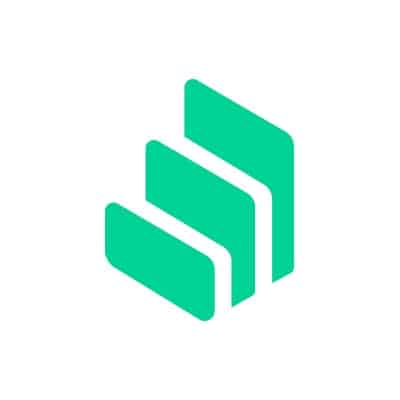

Compound is the leading DeFi protocol that lets users lend and borrow cryptocurrencies in a decentralized ecosystem. Built on the Ethereum blockchain, Compound offers a unique peer-to-peer lending system that enables users to earn interest by providing liquidity to borrowers.
The protocol achieves its functionality through smart contracts, which automatically match borrowers and lenders in a permissionless and transparent way. This means that users can participate in the lending and borrowing processes without intermediaries such as banks or financial institutions.
Compound further enhances the user experience through the application of an Automated Market Maker (AMM). The AMM efficiently matches supply and demand, enabling borrowers to obtain loans quickly and lenders to earn interest on their holdings. This is done by algorithmically determining the interest rates on each loan based on the supply and demand of each asset in the Compound ecosystem.
COMP token holders enjoy the additional benefit of governance rights within the Compound protocol. COMP is used for voting on key issues, such as treasury decisions and updates to the protocol. This empowers users to have a voice in the ongoing development and future of the protocol.
OpenSea


OpenSea is one of the most prominent peer-to-peer marketplaces for digital assets, specifically non-fungible tokens (NFTs). For those unfamiliar with the platform — OpenSea is a place where users can buy, sell, and trade a variety of digital assets, including rare collectibles, game items, and even virtual real estate.
At its core, OpenSea functions as a decentralized marketplace, meaning that transactions are conducted directly between buyers and sellers without intermediaries such as auction houses or brokers. This allows for greater flexibility and control over the buying and selling process, as well as reduced transaction fees.
One of the key benefits of using OpenSea is the vast array of NFTs available for purchase. Popular examples include CryptoKitties, Axie Infinity, and CryptoPunks, all of which have large and devoted followings. In addition, OpenSea also features a variety of unique and rare NFTs, such as digital art and music, which may appeal to collectors looking for something truly one of a kind.
Blockchain technology underpins on-platform transactions, ensuring their security and transparency. Essentially, each NFT is represented by a unique and tamper-proof digital token, which can be verified by anyone who has access to the blockchain. Not only does it promote peace of mind for buyers and sellers but also trust, even as more and more people enter the NFT space.
As the popularity of NFTs continues to grow, it seems likely that OpenSea will remain a major player in the digital asset marketplace. With its use of blockchain technology, peer-to-peer transactions, and diverse selection of NFTs, the platform is well-positioned to serve as a hub for buyers and sellers looking to take advantage of this burgeoning market.
Rarible
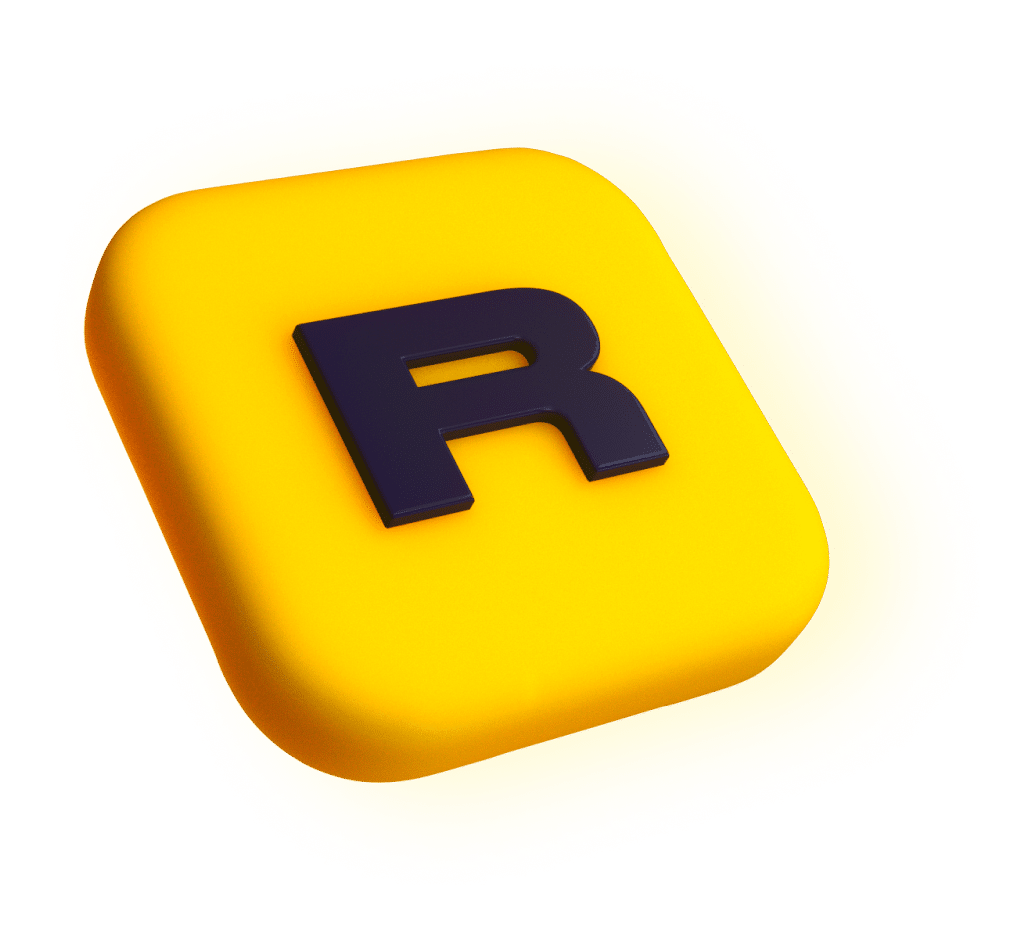

Rarible is a popular NFT marketplace that has gained a lot of traction recently. The platform enables users to trade, mint, and list NFTs, providing a seamless experience for creators and collectors alike. Rarible is based on the Ethereum blockchain, which ensures that transactions are secure and transparent. Moreover, Rarible lets users trade on multiple chains, making it easier for people to access the platform from different networks.
One notable feature of Rarible is the variety of NFT genres available on the platform. With categories ranging from photography, music, and 3D illustrations to collectibles, gaming, and sports, there’s something for every platform user. This rich diversity makes Rarible an attractive option for people in search of unique and original NFTs.
Rarible also features its native token, RARI, essential for users who want to participate in governing the platform and voting on future decisions. RARI tokens are used to incentivize users to engage with the platform actively. The more RARI tokens a user has, the more voting power they possess. Therefore, token holders can significantly impact future developments of the platform.
Yearn Finance
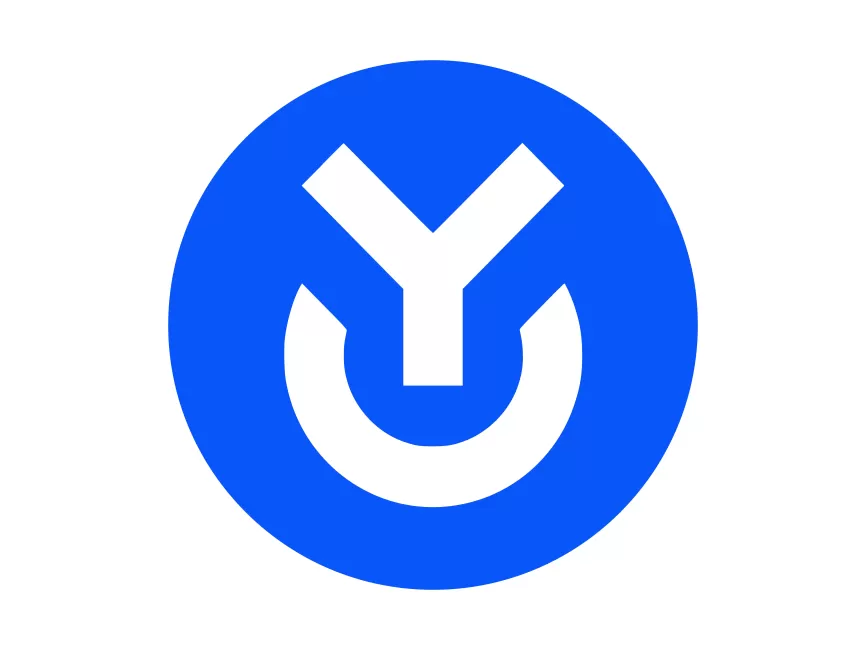
Yearn Finance is a decentralized finance (DeFi) project that offers a yield aggregator and a liquidity provider, allowing users to earn interest on their cryptocurrency holdings. The platform’s two core products, Vaults and Earn, enable users to reinvest and diversify their assets across different protocols, maximizing their returns.
Yearn Finance is unique in the sense that it leverages its native token, YFI, to offer users the highest possible returns. YFI is used to vote on changes to the platform and allocate capital to various DeFi projects. This way Yearn Finance constantly monitors the market and adjusts its investment strategies so that users can get the best possible returns.
Yearn Finance offers a unique solution for users looking to earn interest on their cryptocurrency holdings through its Vaults and Earn products. The use of its native token, YFI, alongside its partnerships with various DeFi projects, ensures that users receive the highest possible returns. While recent developments have caused a temporary dip in the YFI price, Yearn Finance remains a top player in the DeFi space and continues to innovate and grow.
MakerDAO
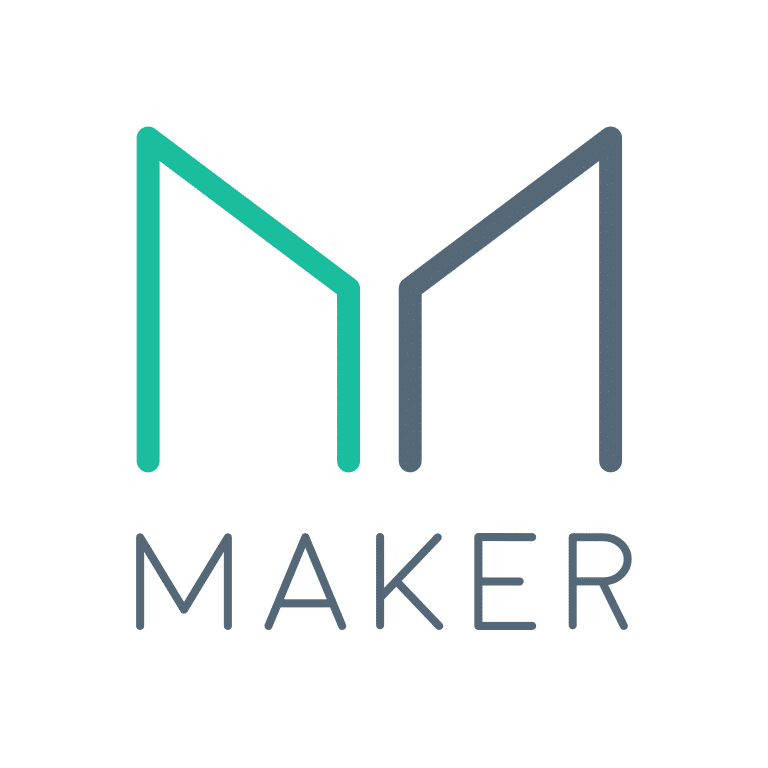

MakerDAO is an Ethereum-based credit service decentralized application (dApp) that offers a unique solution in the DeFi ecosystem. Its core function involves enabling users to receive DAI tokens in exchange for locked ETH tokens. This feature helps DAI tokens remain stable and pegged to the U.S. dollar, providing its users with a stablecoin solution.
As a stablecoin provider, MakerDAO plays a crucial role in the DeFi space, creating stability and enabling traders to buy and sell cryptocurrencies without worrying about market volatility. This makes it easier for traders to plan their trades and investments, knowing they have a stable asset they can rely on.
Moreover, MakerDAO has a feature that lets borrowers receive loans by securing their crypto assets in smart contracts. The borrowers can leverage their crypto assets without a third party, creating a trustless, decentralized system that bolsters transparency and fairness in the borrowing process.
In summary, MakerDAO is a credit service dApp that enables users to receive DAI stablecoin in exchange for locked ETH tokens. As a stablecoin provider, it creates stability in the DeFi space and, consequently, simplifies buying, selling, and investing because traders do not have to worry about market volatility. Additionally, it offers borrowers the opportunity to secure loans by leveraging their crypto assets in a transparent and trustless system. Thanks to its innovative services and functions, MakerDAO is becoming increasingly popular in the DeFi ecosystem.
Curve


Curve is a decentralized exchange (DEX) predominantly known for its efficient trading mechanism involving stablecoins. Unlike other DEXs that may see significant slippage in trading stablecoins, Curve has automated market maker (AMM) algorithms in place that allow for low-slippage transactions. This means that users can trade stablecoins for major cryptocurrencies and vice versa without facing excessive fees or slippage.
One of the standout features of Curve is that it is a DEX specifically designed to facilitate stablecoin trading. This makes it an ideal platform for users who are looking to trade stablecoins since they can do so without incurring significant slippage-related losses.
Moreover, Curve offers low transaction fees, ensuring that users do not have to pay exorbitant amounts for every transaction they make. This is particularly notable because the platform incorporates a seamless trading process that is both fast and efficient.
The CRV token is native to the Curve platform and is used to govern the protocol. With it, users can vote on changes to the protocol, including fee structures, liquidity incentives, parameter changes, and more. Ownership of CRV tokens also gives users a say in the platform development, as they enable holders to make suggestions and engage with the community.
To sum up, Curve is a decentralized exchange that is specifically designed for efficient stablecoin trading. It offers low slippage and fees, making it an ideal platform for users who are looking to trade large amounts of stablecoins. Its native token, CRV, plays a crucial role in the protocol governance and allows for a democratic decision-making process. Overall, Curve is a unique DEX in the DeFi ecosystem, offering a reliable, efficient, and cost-effective trading experience.
Axie Infinity
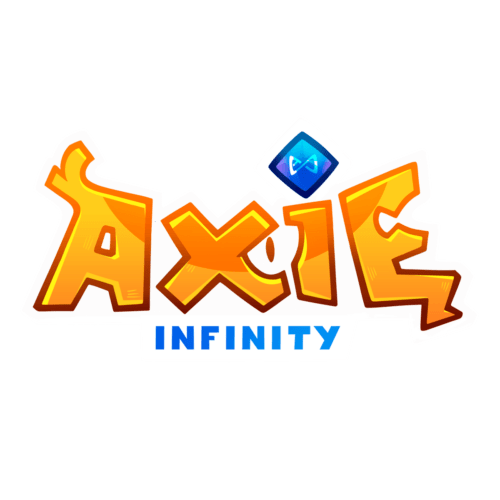

Axie Infinity is a popular Ethereum-based play-to-earn blockchain game that has taken the gaming industry by storm. It has gained significant attention due to its unique gameplay mechanics and interesting features. In this section, we will explore Axie Infinity and go through everything you need to know about the game.
At its core, Axie Infinity is a game about collecting, breeding, and battling little creatures called Axies. These creatures are digital assets that can be traded like non-fungible tokens (NFTs) in the open market. Each Axie has its set of unique traits, which makes them collectible and valuable.
Players can obtain Axies either by purchasing them in the open market or by breeding two Axies. The breeding process is one of the most exciting aspects of the game; by engaging in it, users can create new and more unique Axies. Additionally, players can trade Axies in the marketplace for cryptocurrency.
Axie Infinity has gained significant popularity as a result of its play-to-earn model. Players can earn revenue by playing the game and completing various tasks such as breeding Axies or winning battles. This gives the game a unique value proposition that has attracted a large and active community of players.
Moreover, Axie Infinity has its native token called AXS. This token plays a significant role in the game’s ecosystem. It can be used for staking, voting on governance proposals, breeding new Axies, or purchasing land in the game’s virtual world. The market capitalization of AXS has skyrocketed in recent times, reflecting the rapid growth of the game’s player base.
Despite its successes, Axie Infinity has also faced challenges like any other game out there. The recent fee hike drew negative reactions from the players. However, the community continues to show resilience and is actively working towards finding a solution to the issue.
Overall, Axie Infinity is a unique and exciting game that has called significant attention to the blockchain gaming industry. Its play-to-earn model, NFT transactions, and active community make it a groundbreaking game that is sure to have a lasting impact.
Decentraland (MANA)
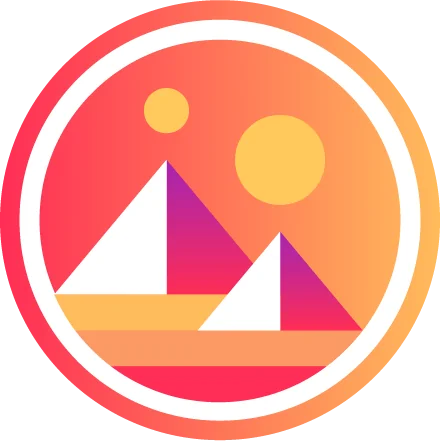
Decentraland (MANA) is a top metaverse project that has made substantial strides in the decentralized world. It is a virtual world designed to operate on the Ethereum blockchain, offering a truly unique and immersive experience to users worldwide.
Decentraland works by utilizing the power of blockchain technology to create a fully decentralized virtual world. Users can purchase and own digital real estate on the platform, which they can develop and monetize. The virtual world is designed to be completely interoperable, allowing users to create and share their content with ease.
At the core of Decentraland lies its native token, MANA. It plays a huge role in the platform’s ecosystem, serving as a means of payment for digital real estate transactions. Besides, it acts as a governance token. Owning MANA provides users with numerous benefits, including the ability to vote on proposals affecting the platform’s development and direction.
One of the most significant features of Decentraland is the ability to purchase and sell digital real estate. With the help of MANA, users can buy and develop plots of land within the virtual world. This lets them create unique and personalized content, which they can monetize and sell to other users.
Another highlight of Decentraland is wearable NFTs. Users can design and trade various types of NFTs, including wearables, thus acquiring unique avatars to explore the platform with.
Decentraland’s popularity is growing within the GameFi space, and its use of blockchain technology contributes to the creation of a secure, transparent, and decentralized platform for users. If you’re looking to experience a revolutionary virtual world, Decentraland is undoubtedly one of the best dApps to explore.
Best Decentralized Apps: Final Thoughts
The development of decentralized applications (dApps) has revolutionized how users interact with decentralized systems, granting them access to a whole new world of functionality. dApps eliminate many of the drawbacks of traditional centralized systems and provide benefits such as enhanced privacy, improved safety protocols, low or zero transaction fees, and increased flexibility. As a result, users can perform various activities unavailable via centralized services.
However, it is important for users to exercise due diligence before engaging in any financial transactions. This includes verifying whether the dApp they intend to use is credible and secure by checking online reviews and consulting relevant experts. By doing these simple steps to verify the legitimacy of dApps, users can be sure that their data remains safe and secure when transacting with decentralized applications.
Disclaimer: Please note that the contents of this article are not financial or investing advice. The information provided in this article is the author’s opinion only and should not be considered as offering trading or investing recommendations. We do not make any warranties about the completeness, reliability and accuracy of this information. The cryptocurrency market suffers from high volatility and occasional arbitrary movements. Any investor, trader, or regular crypto users should research multiple viewpoints and be familiar with all local regulations before committing to an investment.
Source:Changelly.com

